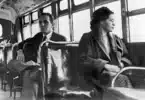Every country faces specific human rights issues, but human trafficking is a problem for every place on the planet. Wherever there’s poverty, conflict, a lack of education, or political instability, vulnerable people are at risk. Human trafficking is the world’s fastest-growing criminal industry. Sexual exploitation brings in most of the billions of dollars of profit, but forced labor also generates wealth. The universality of human trafficking doesn’t negate the fact that the issue is multi-faceted and as a multitude of root causes. Certain countries are more dangerous than others and certain people groups are more vulnerable. To learn more about specific human trafficking issues and solutions, here are five essays you can read or download for free:
“Human Trafficking and Exploitation: A Global Health Concern”
By: Cathy Zimmerman and Ligia Kiss
While labor migration can be beneficial to workers and employers, it’s also a hotbed for exploitation. In this essay from PLOS, the authors argue that human trafficking and the exploitation of low-wage workers have significant negative health impacts. Because of the magnitude of human trafficking, health concerns constitute a public health problem. Thanks to certain business models that depend on disposable labor, exploitation is allowed to flourish while protections are weakened. The essay states that trafficking initiatives must focus on stopping exploitation within each stage of labor migration. This essay introduces a special collection from PLOS on human trafficking and health. It’s the first medical journal collection on this topic. It includes pieces on child sex trafficking in the United States and the slavery of sea workers in South East Asia. Cathy Zimmerman and Ligia Kiss, the guest editors and authors of the first essay, are from the London School of Hygiene and Tropical Medicine.
“Introducing The Slave Next Door”
By: Jen Birks and Alison Gardner
Published in a special issue of the Anti-Trafficking Review on public perceptions and responses to human trafficking, this essay focuses on Great Britain. According to the essay, there’s been a shift in what the public thinks about trafficking based on local reporting and anti-slavery campaigns. British communities are starting to realize how prevalent human trafficking is in their own backyards. The essay takes a closer look at the media and campaigns, how they’re representing cases, and what people are doing with the information. While specific to Britain, it’s a good example of how people can perceive trafficking within their borders.
Jen Birks is an Assistant Professor in media at the Department of Cultural, Media, and visual Studies at the University of Nottingham. Alison Gardner is at the School of Sociology and Social Policy at the University of Nottingham with a Nottingham Research Fellowship. She is part of the university’s Rights Lab.
“My Family’s Slave”
By: Alex Tizon
One of The Atlantic’s biggest stories of 2017, this essay tells a personal story of modern slavery. At 18-years old, Lola was given to the writer’s mother and when they moved to the United States, Lola came with them. On the outside, Tizon’s family was, in his words, “a poster family.” The truth was much darker. The essay sparked countless reader responses, including those of people who were once slaves themselves. Reading both the criticism and praise of the essay is just as valuable as the essay itself.
Alex Tizon died at age 57 years old before his essay was published. He had a successful career as a writer and reporter, sharing a Pulitzer Prize while a staff member at The Seattle Times. He also published a 2014 memoir Big Little Man: In Search of My Asian Self.
“Vietnam’s Human Trafficking Problem Is Too Big To Ignore”
By: Thoi Nguyen
In November 2019, 39 Vietnamese people were found dead in a truck container. They were identified as victims of a human trafficking ring. In Nguyen’s article, he explores the facts about the severity of human trafficking in Vietnam. For years, anti-slavery groups have warned the UK about a rise in trafficking, but it took a tragedy for people to start paying attention. Nguyen discusses who is vulnerable to trafficking, how trafficking functions, and Vietnam’s response.
Freelance journalist Thoi Nguyen is a member of Chatham House and a member of Amnesty International UK. In addition to human trafficking, he writes about the economy, finance, and foreign affairs. He’s a specialist in South East Asian geopolitics.
“History Repeats Itself: Some New Faces Behind Sex Trafficking Are More Familiar Than You Think”
By: Mary Graw Leary
This essay highlights how human trafficking isn’t only a criminal enterprise, it’s also an economic one. Leary looks specifically at how businesses that benefit (directly or indirectly) from slavery have always fought against efforts to end it. The essay focuses on government efforts to disrupt online sex trafficking and how companies are working to prevent that from happening. Human trafficking is a multi-billion dollar industry, so it makes sense that even legitimate businesses benefit. Knowing what these businesses are is essential to ending trafficking.
Mary Graw Leary is a former federal prosecutor and currently a professor of law at The Catholic University of America. The Chair of the United States Sentencing Commission’s Victim Advocacy Group, she’s an expert in exploitation, missing persons, human trafficking, and technology.












